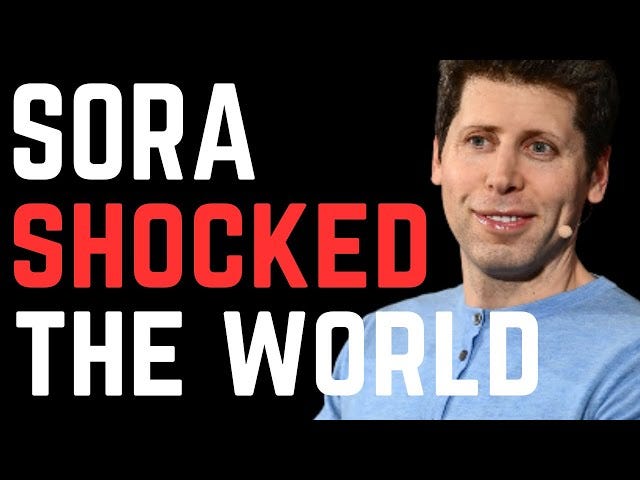OpenAI, the prominent artificial intelligence company, has recently faced criticism and controversy regarding the use of YouTube videos for training their new video product called Sora without obtaining explicit permission from content creators
.
Sora is an AI model developed by OpenAI that uses vast amounts of video data to learn and generate new video content. To train Sora, OpenAI reportedly utilized a large dataset of YouTube videos, which has raised concerns among content creators and legal experts about the potential violation of intellectual property rights and the lack of consent from the original video owners. Many
YouTubers argue that using their content to train AI models without their permission is a form of copyright infringement. They believe that their creative work is being exploited for commercial purposes without proper compensation or attribution. Some content creators also worry that AI-generated videos based on their original content could compete with their own videos and potentially harm their viewership and revenue. OpenAI, on the other hand, has defended its use of YouTube videos for training Sora, stating that it falls under the fair use doctrine.
They argue that the AI model learns from the videos to create new, transformative content and does not simply replicate or distribute the original videos. OpenAI also claims that the training process does not harm the market value of the original content. However, legal experts have varying opinions on whether OpenAI's use of YouTube videos constitutes fair use. Some believe that the scale and commercial nature of OpenAI's operations may not align with the principles of fair use, while others argue that the transformative aspect of AI-generated content could justify the use of copyrighted material for training purposes.
The controversy surrounding OpenAI's use of YouTube videos without permission highlights the complex legal and ethical challenges that arise as AI technologies advance. It raises questions about the balance between promoting innovation and protecting the rights of content creators in the digital age. As the debate continues, there are calls for clearer regulations and guidelines on the use of copyrighted material for AI training. Some suggest that AI companies should obtain explicit consent from content creators or compensate them for the use of their work.
Others propose the development of new licensing models or the creation of a centralized database where content creators can opt-in to allow their material to be used for AI training. The outcome of this controversy could have significant implications for the future of AI development and the relationship between technology companies and content creators. It underscores the need for ongoing dialogue and collaboration among stakeholders to establish fair and equitable practices in the AI industry while fostering innovation and respecting intellectual property rights.





